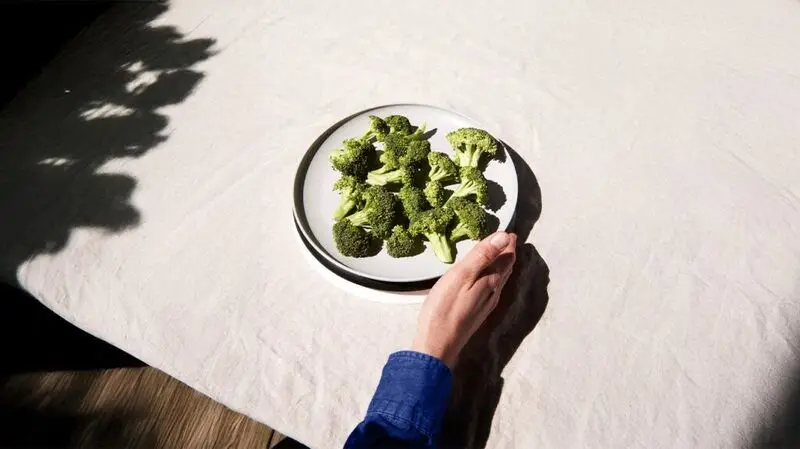
- Colorectal cancer is the third most common cancer in the world.
- Colon cancer diagnoses under the age of 50 are on the rise for a number of reasons, including eating a diet high in processed foods.
- Past studies show that focusing on certain types of foods may help lower a person’s colon cancer risk.
- A new study says consumption of cruciferous vegetables may help decrease colon cancer risk.
As of 2022, there were more than 1.9 million new cases of colorectal cancer globally, making it the third most common cancer in the world.
This type of cancer — also known as colon or bowel cancer — is currently on the rise in people under the age of 50.
Scientists believe this increased risk for early-onset colorectal cancer is caused by a combination of factors, including sedentary lifestyle, obesity, alcohol consumption, environmental factors, and a diet high in processed foods.
Past studies show that focusing on certain types of foods, like whole plant foods, dietary fiber,
For this study, researchers analyzed data from a total of 17 studies, encompassing more than 97,000 participants, to search for potential connections between the amount of cruciferous vegetable consumption and colon cancer incidence, known as a dose-response relationship.
At the study’s conclusion, researchers found that study participants who ate more cruciferous vegetables — between 20 to 40 grams (g) per day — had a 20% lower risk of colon cancer, compared to those who ate less.
Overall, scientists found eating about 20 grams a day of cruciferous vegetables offered the most protection, and the protective effect leveled off between eating 40 to 60 grams a day.
Previous research shows that cruciferous vegetables, like kale and cabbage, may help lower cancer risk by containing certain cancer-fighting compounds like sulforaphane and indoles.
Monique Richard, MS, RDN, LDN, a registered dietitian nutritionist and owner of Nutrition-In-Sight, who was not involved in this review, explained to Medical News Today:
“We have observed in research the benefits of compounds in cruciferous vegetables, such as glucosinolates, often attributed to their ability to protect cells against cancer, oxidative stress, toxins, and free radicals, alongside being a rich source of vitamin C, minerals, flavonoids,
carotenoids , and phytochemicals.”
“The soluble and insoluble fiber content also feeds the microbiota in the gut, and helps keep the gut lining Healthy and vibrant as it moves through inhibiting bacterial growth,” Richard added.
Past studies have linked cruciferous vegetable consumption to a decreased risk for colon, ovarian,
MNT had the opportunity to speak with Nilesh Vora, MD, a board-certified hematologist and medical oncologist and medical director of the MemorialCare Todd Cancer Institute at Long Beach Medical Center in Long Beach, CA, about this research.
Vora, who was not involved in the review, commented that he found the results to be very thought-provoking, saying they could help generate a hypothesis between cruciferous vegetable intake and colon cancer incidence.
“We’re seeing a very high increase in colon cancer, especially amongst younger individuals,” he explained. “We don’t have a better explanation other than environmental causes, diet being one of them, other lifestyle choices such as exercise. I think the research that dives into this can further clarify why the incidence is increasing and also give us a potential way to decrease the incidence of colon cancer.”
Nevertheless, Vora said he would like to see more validation studies for this research.
For readers who wish to add more broccoli, kale, and other cruciferous vegetables to their diet — but maybe are not overly fond of their taste — was asked Richard for her top tips.
“The smell and taste, as well as texture, may be off-putting for some people’s palates, but plants like broccoli, cauliflower, cabbage, and kale just want to be your friend,” Richard explained.
While these vegetables can be an easy way to add crunch and texture to many snacks and meals, Richard said they sometimes may need some creativity, pizazz, or just patience to see what may work for your time and taste buds. Here are some of her suggestions:
- Start small: Try 2 servings of greens a day, which could be as simple as a cup of cabbage slaw with lunch and a 1/2 cup cooked broccoli with dinner.
- Chop, sit, steam: Chop broccoli or cauliflower up to 45 minutes before cooking — this activates the beneficial compounds, but also releases some of its pungency — and finish by lightly steaming to capture some of the active compounds.
- Roasted option: Breaking cauliflower and/or broccoli up, laying flat on a baking sheet, and then drizzling with extra virgin olive oil, garlic, salt, pepper and Worcestershire sauce, then roast until slightly brown and crispy can be a flavor game-changer by bringing out the natural sweetness, making it a delicious side or base for a bowl or salad.
- Add a healthy sauce: Top roasted Brussels sprouts, cabbage, or kale with a bit of mustard seed, wasabi, soy sauce, or horseradish for added benefits with an Asian-inspired flare and kick.
- Blend them in: Toss raw arugula or kale into smoothies, or grate cabbage into slaws, stir-fries, salads, or as a base to garnish fish, tofu, or tempeh — taming the bitterness.
- Cultivate tasty cuisine: Try medley bowls with a mixture of plants and whole grains (e.g., radish, kohlrabi, and carrot ribbons with long-grain rice or quinoa), roasted with olive oil, then finish with lemon zest, tzatziki, or green goddess dressing to make crucifers crave-worthy.
Other easy ideas from Richard for adding more cruciferous vegetables into your every day cooking include:
- folding broccoli florets into omelette batter, casseroles, or sprinkled on pizza
- taking a stab at making kale chips
- substituting riced cauliflower (make or buy premade or frozen) or mashed turnips for potatoes, rice, or noodles in your favorite meal
- add arugula or mustard greens to your usual spring mix or romaine lettuce base, to sandwiches or atop scrambled eggs.
“Colon cancer prevention is not in a pill — it comes in your farmer’s fields, garden, and produce aisle,” Richard said. “Don’t forget to visit a registered dietitian nutritionist (RDN) for more customized information related to your individual nutritional and Health needs, culinary application, and how what we know from science can be translated into what’s on your plate.”





